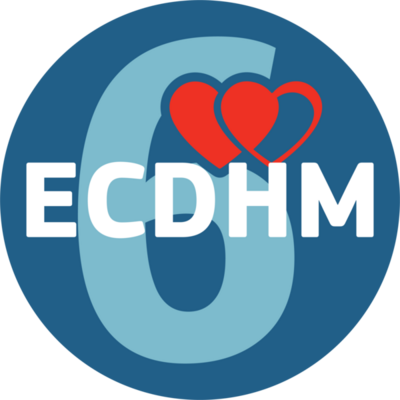Call for Abstracts and Best Practices
Submission period: 15 January until 14 March 23.59h, 2025
Abstract notifications: 15 May, 2025
Conference theme:
Sustainability in donations implies well-informed voluntary donors who are committed to donating substances of human origin (regularly). They form the basis of a sustainable, healthy pool of donors that can provide a safe, reliable, and sufficient supply of products in all situations and at all times.
Abstract types:
Besides scientific abstracts, practical abstracts (e.g. examples of a newly implemented donor management strategy, an intriguing case report, workshops) are strongly encouraged. Furthermore, several abstracts can be combined in a 'special session' > see more details below.
Reviewing:
New in this ECDHM edition: Please note that by submitting an abstract, you also commit to review four abstracts that others submit. Instructions, the abstracts, and a simple form to guide you through the process will be provided to you after the abstract submission deadline.
Topics:
We especially encourage submissions that address sustainability in its many forms, for example:
Cultivating and managing a robust donor pool for lifesaving contributions.
Readiness for future crises – building resilient systems.
Prepare and adapt to future and ongoing developments.
Develop and adopt more sustainable methods, logistics, and materials in blood and plasma collection.
International capacity building, sharing best practices.
Instructions:
Authors can submit abstracts for consideration for a poster or oral presentation through the abstract submission page. An author can submit a maximum of two abstracts for the conference, although he or she may be listed as co-author in other submissions. All abstracts must be in English. The following information must be provided in the submission system: Title, Authors (names and affiliations), Name and Email address of presenting author, Additional author email addresses (optional), Topic/Track (Donor Health or Donor Management), Abstract text (max 500 words), Keywords (up to 5), Optional remarks.
The abstract text should be no more than 500 words, structured under the headings:
Background
Aims
Methods
Results
Conclusion
One table or one figure is allowed (not required) and should be uploaded separately, preferably in pdf (ps, pdf, doc, zip files are allowed). If the abstract structure (Background, Aim, Methods, Results, Conclusion) is not suitable for your (practical) abstract, deviations can be accepted.
Do you have an example of how research did not translate very well into practice? We would love to have that input for a session that enables learning about potential pitfalls, and how to avoid them. This does not require an actual abstract, but please submit a summary of your experiences, using the abstract format without subheadings, so that we can assess whether or not it’s suitable for an interactive workshop.
Financial travel support:
ECDHM, with support from ISBT, is pleased to offer a limited number of travel grants for participants from Low-, Lower-Middle-, and Upper-Middle-Income World Bank Index categories (LIC, LMIC, or UMIC). This funding covers hotel accommodation and travel expenses (up to €800 per person), excluding the congress registration fee. To be eligible, participants must indicate their interest in the funding when submitting their abstract. Abstract selection is independent of funding requests. Grant allocation will be based on reviewer scores for the submitted abstracts. Grants will be awarded until the available budget is fully allocated.
Call for special sessions (to be scheduled on Friday, September 12):
Participants are encouraged to set up a special session around a specific topic, which will be scheduled on the final day of the conference. The goal of these special sessions is to provide a forum for discussion of a relevant and timely topic and to examine that topic from a variety of perspectives. A submission to a special session should comprise several curated abstracts on a devoted topic. A submission should consist of 1) a motivation of the overarching topic, 2) a summary and contextualization of the abstracts, and 3) the abstracts. Authors interested in submitting to a special session should therefore contact other researchers in advance and submit a complete package using the special session template that can be downloaded here. Your special session should be submitted by emailing the document to ECDHM-2025@sanquin.nl.
If an exciting individual contribution is better suited to a special session, it is possible that you will be contacted to integrate this abstract into your special session. An abstract should only be submitted once, i.e., either as a single contribution or as part of a special session.
